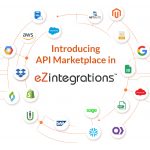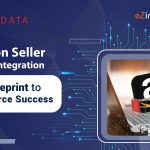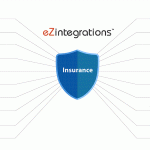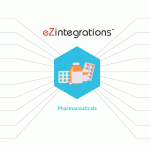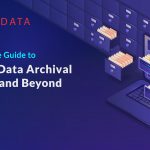The way we work is changing. The COVID-19 pandemic has forced businesses to rapidly digitalize in order to stay afloat, and this is only the beginning. In the next few years, we can expect even more businesses to undergo digital transformations as they race to keep up with the competition. But what exactly will these transformations entail? Here are 10 digital transformation trends that you can expect to see in 2022 and beyond.
Data integration
1.Data integration is one of the most important digital transformation trends. This involves integrating data from different sources so that it can be used to make better decisions. This can be done manually or through automated processes.
2. Data integration is important because it allows businesses to make better use of their data. By integrating data from different sources, businesses can get a more complete picture of their customers, their products, and their operations. This helps businesses to make better decisions and improve their operations.
3. Data integration is also important because it helps businesses to avoid silos. Silos occur when businesses have data that is isolated from other data. This can lead to problems because it makes it difficult for businesses to share data and make decisions based on all of the available information.
4. Data integration is a trend that is here to stay. As businesses increasingly rely on data to make decisions, data integration will become more and more important.
Advanced analytics
1. Advanced analytics is one of the most important trends in digital transformation. This technology helps organizations to make better decisions by analyzing data more effectively.
2. Advanced analytics can be used to improve customer service, marketing, and operations. For example, it can be used to identify customer trends, optimize marketing campaigns, and improve operational efficiency.
3. Advanced analytics is often used in conjunction with other technologies, such as artificial intelligence (AI) and the Internet of Things (IoT). Together, these technologies can help organizations to transform their businesses in a variety of ways.
4. Organizations that are using advanced analytics are seeing significant benefits. They are able to make better decisions, improve their operations, and drive growth.
5. Advanced analytics is an important trend that all organizations should be aware of. Those that embrace this technology will be well-positioned to succeed in the digital age.
Cloud-Native Platforms
1. Cloud-native platforms are a type of digital transformation trend that is becoming increasingly popular.
2. Cloud-native platforms are designed to run on cloud computing infrastructure, which offers many benefits over traditional on-premises infrastructure.
3. Cloud-native platforms offer increased flexibility, scalability, and cost savings over traditional on-premises solutions.
4. Many organizations are turning to cloud-native platforms to help them with their digital transformation initiatives.
5. Cloud-native platforms are expected to continue to grow in popularity in the years to come.
Data fabric
1. Data fabric is a term used to describe the way data is stored and accessed in a digital world. It is a system that allows for the easy and secure sharing of data between different devices and platforms.
2. Data fabric is becoming increasingly important as more and more businesses move towards digital transformation. It allows businesses to connect their various systems and share data between them seamlessly. This helps to improve efficiency and productivity.
3. Data fabric is also becoming increasingly important for personal users. As we move more of our lives online, it is important to have a system that can easily and securely store and access our data. Data fabric provides us with this system.
4. There are many different providers of data fabric solutions. Some of the most popular include Apache Hadoop, IBM BigInsights, and Microsoft Azure HDInsight. 5. Data fabric is an important part of the digital world, and it is only going to become more important in the future.
Generative AI
1. Generative AI is a type of AI that is designed to create new data. This can be used to generate new images, videos, or text. Generative AI can be used to create realistic data that can be used for training other AI models.
2. Generative AI is a relatively new field of AI, and it is constantly evolving. Some of the latest trends in generative AI include GANs, VAEs, and reinforcement learning.
3. Generative AI can be used for a variety of purposes, such as creating realistic data for training other AI models, generating new content, or creating art.
4. Generative AI is a rapidly growing field of AI with immense potential.
AR Cloud
1. AR Cloud is a digital transformation trend that is gaining popularity in recent years. This technology allows users to view digital content in the real world. For example, a user can view a 3D model of a product in their living room.
2. AR Cloud is still in its early stages of development. However, there are already a number of companies that are working on this technology. For example, Google, Apple, and Facebook are all working on AR Cloud technologies.
3. AR Cloud has the potential to revolutionize the way we interact with the digital world. It has the potential to change the way we shop, work, and even entertain ourselves.
4. AR Cloud is just one of many digital transformation trends that are changing the way we live and work.
Everything as a Service (XaaS)
1. The trend of Everything as a Service (XaaS) is on the rise as businesses seek to become more agile and efficient.
2. XaaS refers to the delivery of a wide range of services via the internet, from software to storage and beyond.
3. The benefits of XaaS include increased flexibility, scalability, and cost-efficiency.
4. Many businesses are now turning to XaaS providers such as Amazon Web Services (AWS) and Microsoft Azure for their needs.
5. The trend of XaaS is only set to grow in the coming years, as more businesses look to benefit from its many advantages.
Hyperautomation
1. Hyperautomation is the use of advanced technologies, such as artificial intelligence (AI) and machine learning, to automate tasks that are typically done by humans.
2. Hyperautomation can be used to improve efficiency and productivity in a variety of industries, including manufacturing, healthcare, and financial services.
3. Hyperautomation can also help to reduce errors and improve quality control.
4. Some experts believe that hyperautomation will lead to the elimination of many jobs that are currently done by humans. However, others believe that it will create new opportunities for humans to focus on more creative and strategic tasks.
Decision Intelligence
Decision intelligence is a practical approach to improving organizational decision making. It models each decision as a set of processes, using intelligence and analytics to inform, educate and refine decisions.
Decision intelligence can support and improve human decision-making and potentially automate it through advanced analytics, simulations and artificial intelligence.
Software 2.0
Software 2.0 is a technology that automatically generates source code from a requirements document. This can be achieved using Deep Learning (DL), which helps build neural networks to automate code design


